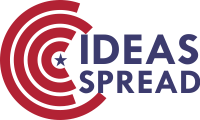Significance of Blooms Taxonomy in Tartary Education A Case Study in the Maritime Industry
Abstract
The maritime education is a modern, highly technical, professional discipline. The shipping industry requires a workforce with a great deal of skill, knowledge and expertise. Modern ships are equipped with very sophisticated toots, but having great tools is not productive unless the employees know the best way to use them. Unlike in most job tasks ashore, seafarers need high level of competence to ensure safe, secure and clean shipping industry. This paper discuss about the significance of Blooms Taxonomy in the maritime education and training. The action words of the revised taxonomy considers the cognitive processes to enhance the effectiveness of teaching and training methods. The verbs used in this taxonomy refers to the intended cognitive process that the trainer expects as the result of the educational activities.
References
dictionary.com. (2021). Study. Retrieved from https://www.dictionary.com/browse/study
Edirisinghe, L. (2018). Interactive Teaching Methods to Improve the Quality in Maritime Education. Proceedings of the 2nd DMU International Conference on Maritime Education and Training (pp. 32-42). Dalian: Dalian Maritime University.
Edirisinghe, L., & Jin, Z. (2018). The Reality of Container Exchange between Carriers: Clearing the Pathway to Virtual Container Pool. Transport Policy. https://doi.org/10.1016/j.tranpol.2018.09.009
Edirisinghe, L., Ranwala, L., & Siriwardena, S. (2021). Shaping the Education to Meet the Global Demands: Industrial Inclusiveness in University Curriculum. Sustainable Development Research, 28-38. https://doi.org/10.30560/sdr.v3n3p28
Edirisinghe, L., Siddhisena, K., Siriwardena, S., & Ranwala, L. (2022). Creating a Psychological Paradigm Shift in Students’ Choice for Tertiary Education in Sri Lanka: The Influence of Socioeconomic Factors. Journal of Educational Administration and Policy Studies, 1-16.
Edirisinghe, L., Siriwardena, S., & Ranwala, L. (2021). Fundamental Prerequisites to Create a Psychological Paradigm Shift in Students’ Degree Choice. International Journal of Research -GRANTHAALAYAH, 386-405. https://doi.org/10.29121/granthaalayah.v9.i10.2021.4339
EduMaritime. (2021). What are the Types of STCW Certificates and CoC for Seafarers? Retrieved from https://www.edumaritime.net/stcw/certification-general-requirements
Gundić, A., Vujičić, S., Maglić, L., & Ivanišević, D. (2020). Methods for demonstrating a competence and criteria for evaluating a competence in STCW Convention. Scientific Journal of Maritime Research, 245-251. https://doi.org/10.31217/p.34.2.5
IMO. (1997). The new STCW Convention. London: International Maritime Organization.
Jamil, M., & Bhuiyan, Z. (2021). Deep learning elements in maritime simulation programmes: a pedagogical exploration of learner experiences. International Journal of Educational Technology in Higher Education. https://doi.org/10.1186/s41239-021-00255-0
Kim, T. E., Sharma, A., Bustgaard, M., Gyldensten, W., Nymoen, O., Tusher, H., & Nazir, S. (2021). The continuum of simulator-based maritime training and education. WMU J Marit Affairs. https://doi.org/10.1007/s13437-021-00242-2
KT. (2021). Simulation Based Training – The Value of Learning by Doing. Retrieved from https://kepner-tregoe.com/blogs/simulation-based-training-the-value-of-learning-by-doing/
Kurtus, R. (2012). Education Process. Retrieved from https://www.school-for-champions.com/education/education_process.htm#.YbYK7b1BzIU
Millar, R. (2004). The role of practical work in the teaching and learning of science. Washington, DC: National Academy of Sciences.
NRC. (1996). Effective Training with Simulation: The Instructional Design Process. In N. R. Council, Simulated Voyages: Using Simulation Technology to Train and License Mariners. Washington, DC: The National
Peiris, A., & Edirisinghe, L. (2021, July). Seafaring: Key Foreign Exchange Earner to Sri Lanka. Bridge - CASA.
PPC. (2021). The learning pyramid. Retrieved from https://thepeakperformancecenter.com/educational-learning/learning/principles-of-learning/learning-pyramid/
Salman, A. K. (2013). The importance of using ship bridge simulation training to enhance the competency of masters and watch-officers: a case study of the Iraqi dredging fleet. Geneva: World Maritime University.
Stan, L. (2014). Simulation Sechnology in Educational Process. Procedia - Social and Behavioral Sciences, 116, 4521-4525. https://doi.org/10.1016/j.sbspro.2014.01.978
Sweeney, K. (2009). Simulator-training-can-be-a-good-alternative-to-onboard-experience. Retrieved from https://www.professionalmariner.com/simulator-training-can-be-a-good-alternative-to-onboard-experience/
Toz, A., & Koseoglu, B. (2012). Simulation Based Training on Maritime Education and Application on Ice Navigation Module. Journal of Marine Technology and Environment.
U.G.C. (2015). Sri Lanka Qualification Framework. Colombo: University Grants Commission- Sri Lanka.
Voloshynov, S., Zhuravlev, F., Riabukha, I., Smolets, V., & Popova, H. (2021). Application of VR technologies in building future. CEUR Workshop Proceedings, 68-81.
Wartsila. (2021, 12 02). Simulation and Training Solutions. Retrieved from www.wartsila.com: https://www.wartsila.com/voyage/simulation-and-training?utm_source=google&utm_medium=search-paid&utm_term=simt&utm_content=cta-link&utm_campaign=2021-WV-Search-TIER2-Ongoing&gclid=CjwKCAiAhreNBhAYEiwAFGGKPKYzFBeSwAVTB38pBoF_pFjpHVlvq_GeT2P_OJ4lx0mDuL-ho8R
Web References
https://www.sqa.org.uk/sqa/files_ccc/BenchmarkingSQAAdvancedCertificateDiplomaSriLankanEducationSystemSummaryReport.pdf
www.sqa.org.uk/. (na). Benchmarking the SQA Advanced Certificate and Diploma in the Sri Lankan Education System. Retrieved from https://www.sqa.org.uk

This work is licensed under a Creative Commons Attribution 4.0 International License.
Copyright for this article is retained by the author(s), with first publication rights granted to the journal.
This is an open-access article distributed under the terms and conditions of the Creative Commons Attribution license (http://creativecommons.org/licenses/by/4.0/).
























